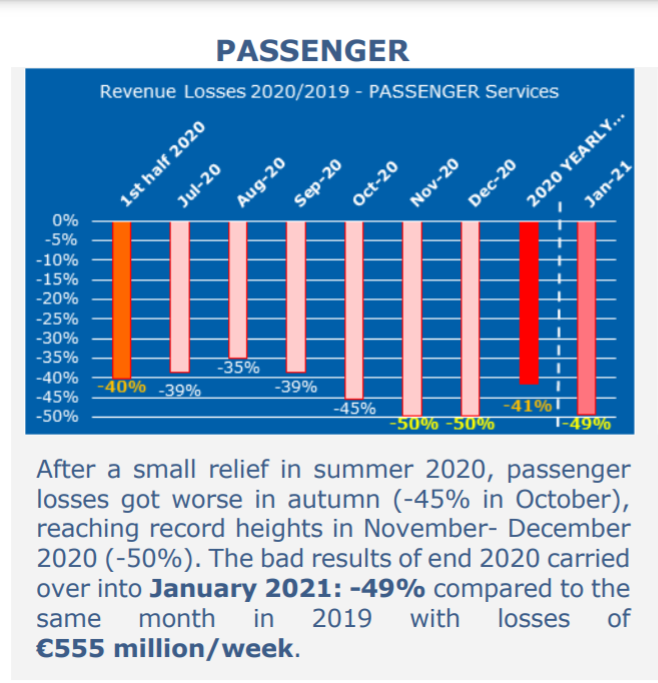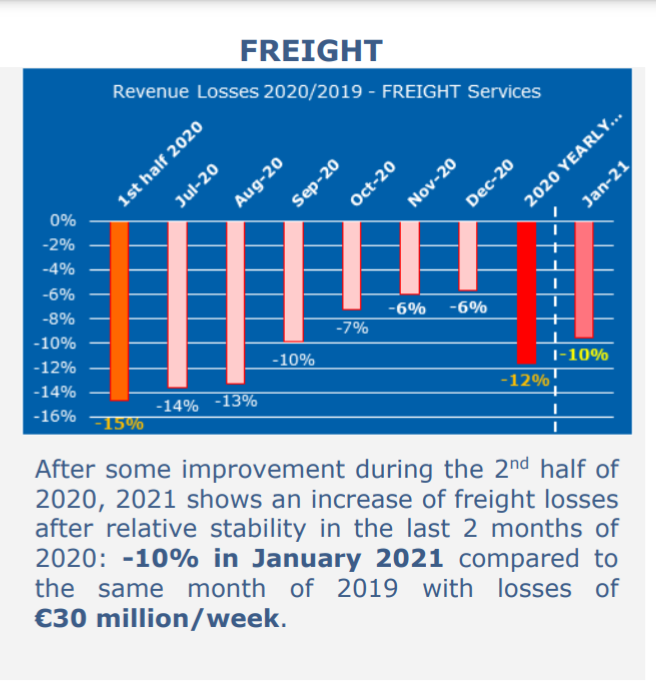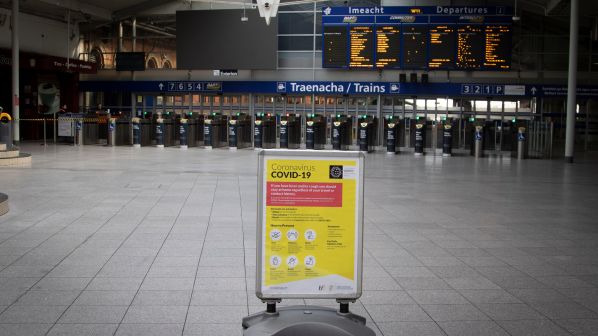THE Community of European Railway and Infrastructure Companies (CER) has reported an approximate combined fall in revenue for the European Union’s (EU) rail sector of around €585m per week for January compared with the same month in 2019.
CER says the figures for January, collected through a regular monthly survey of its 70+ members, which include operators, infrastructure managers and industry associations, indicate that the industry continues to feel the impact of the Covid-19 pandemic, with “no signs of improvement for passenger or freight services.”

It notes that a downward trend in passenger revenues which it has observed since October 2020 continues, with members recording a 49% reduction in revenue in January 2021 compared with the same month in 2019 - equivalent to sector-wide revenue reduction of €555m per week and similar to levels recorded in November and December 2020.
CER also highlights that an upswing in freight revenue, which had been ongoing since the middle of 2020, has now reversed. There was a 10% reduction in January 2021 compared with the same month in 2019 - equivalent to sector-wide revenue reductions of approximately €30m per week.

CER announced in January that total revenues for the EU rail sector fell by around €26bn year-on-year in 2020 due to the pandemic, with passenger operators accounting for €24bn of this figure, and freight accounting for the remaining €2bn.
CER says falls in revenue ranged between 3% and 32% for freight operators in 2020, with a much wider range of variation of between 3% and 91% among passenger operators. Border restrictions meant that operators specialising in cross-border services, such as Eurostar and Thalys, and cross-border ticketing products, such as Eurail and InterRail, were especially hard hit.
“Since the beginning of the pandemic, railways have been second to none in keeping passengers and freight moving,” says CER executive director, Mr Alberto Mazzola. “But the pandemic took an unprecedented toll on their economic viability. As the capacity of the railways to support both recovery and sustainability is widely recognised, it is all the more urgent that political decision makers provide an adequate level of support to railway operators to mitigate the negative impact of Covid-19. This is indispensable for the sector’s recovery and future growth, allowing rail to fulfil its role as the backbone of smart and sustainable mobility.”

